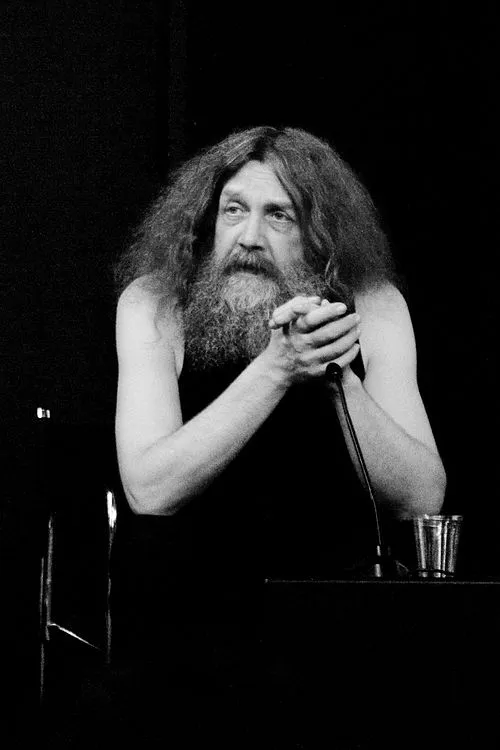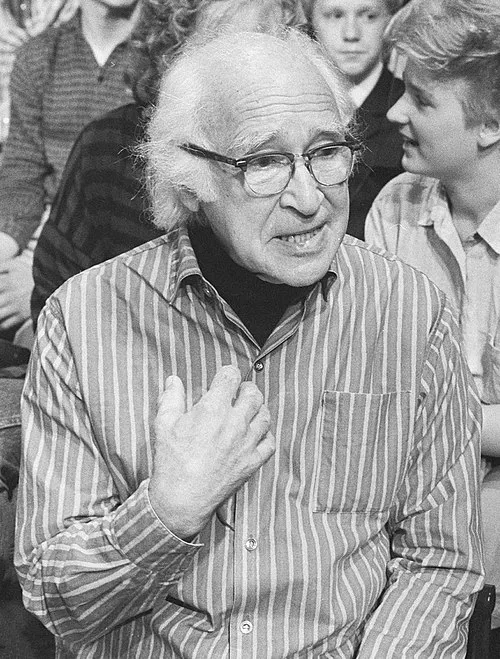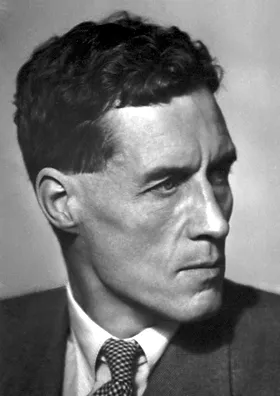
Name: Alan Moore
Birth Year: 1953
Nationality: English
Profession: Author
Notable Works: Watchmen, V for Vendetta, Swamp Thing
Genre: Comic books, Graphic novels, Horror, Fantasy
Influence: Considered one of the greatest comic book writers
Alan Moore: A Journey Through the Shadows of Creativity
Born in 1953 in Northampton, England, Alan Moore emerged from the chaos of post-war Britain. Raised amidst a backdrop of industrial decline and cultural shifts, he developed an insatiable appetite for storytelling early on. However, it wasn’t just a typical childhood; instead, it was filled with the vibrant flickers of comic books and the raw energy of underground counterculture.
At just 15 years old, Moore began his foray into writing comics. In his humble bedroom adorned with posters of rock bands and surreal artwork, he penned his first strips on any paper he could find. Ironically, while most teenagers were preoccupied with sports or socializing, Moore's world revolved around superheroes and fantastical realms a foreshadowing of his future legacy.
His career officially took off in the late 1970s when he contributed to various British comics like “Doctor Who” Weekly and “2000 AD.” Yet despite these promising beginnings, success didn’t come easily. He faced rejection after rejection each dismissal fueling a fire within him that would eventually ignite a creative revolution.
Perhaps one of the most pivotal moments came in 1986 with the release of “Watchmen.” This groundbreaking series redefined what comic books could achieve not merely as children’s entertainment but as profound narratives capable of exploring moral complexities. Readers found themselves immersed in a world where heroes grappled with their own flawed humanity a stark contrast to the archetypes they had been accustomed to.
However, not everyone embraced this shift; traditionalists railed against what they perceived as an assault on their beloved genre. Yet here was Alan Moore standing firmly at the forefront who had transformed graphic novels into an art form worthy of serious literary critique.
Early Life and Career
Moore grew up in a working-class family and displayed an early interest in reading and writing. After completing his education in the 1970s, he began his freelance career as a comic book writer. His initial work was published in various British comics, but it was his partnership with DC Comics that propelled him to fame. In the early 1980s, he started creating iconic titles that would redefine the genre.
Groundbreaking Works
One of Moore's most notable contributions to the comic book industry is 'Watchmen' (1986-1987), which deconstructed the superhero archetype and offered a grim depiction of moral ambiguity. This series, illustrated by Dave Gibbons, was a critical and commercial success, winning multiple awards and earning a spot in Time magazine’s list of the 100 best English-language novels published since 1923.
Another landmark title, 'V for Vendetta' (1982-1989), illustrated by David Lloyd, presented a dystopian vision of a totalitarian UK. The narrative, rich with political commentary and philosophical undertones, has since become a cultural touchstone, inspiring numerous adaptations, including a successful film.
Influence and Legacy
Beyond 'Watchmen' and 'V for Vendetta,' Moore's other works, such as 'Swamp Thing,' 'From Hell,' and 'Promethea,' showcase his versatility as a writer. These narratives often blend elements of horror, fantasy, and history, exploring complex characters and the human condition. Moore's unique style, often characterized by his use of dense dialogue, intertextuality, and non-linear storytelling, has influenced generations of writers and artists.
Moore is also known for his controversial stance on the comic book industry. Despite achieving iconic status, he has been critical of modern adaptations of his work, arguing that they dilute the original messages. His opinions have often sparked debates within the comic book community and among fans.
Personal Life
In addition to his prolific writing career, Moore has pursued various interests, including magic, music, and esoteric teachings. He has been open about his beliefs in mysticism and has often woven these themes into his stories. Moore resides in Northampton with his partner, and they have a daughter together. His dedication to staying away from the Hollywood limelight has led to a relatively private life despite his fame.
The Dark Alchemy: Crafting New Realities
The years following “Watchmen” saw Moore delving deeper into complex narratives that interwove mythological themes and existential questions. Works like “V for Vendetta” showcased not only his talent but also hinted at his growing disillusionment with authority figures a theme that resonated powerfully during political upheaval in Britain.
This was no mere rebellion; it was a manifesto stitched together through words and panels! Each character became a vessel for deeper philosophical explorations questions about freedom versus control played out against vivid backdrops drawn from history and fantasy alike.
A Mysterious Persona
As his fame grew exponentially through iconic titles such as “From Hell,” which weaves Jack The Ripper's gruesome tale into an intricate web linking history to conspiracy theories so too did tales about Moore himself become part of pop culture lore. Known for shunning media appearances yet embracing eccentricity wholeheartedly from rituals steeped in mysticism to unusual tattoos the author cultivated an image shrouded in mystery!
The Enigmatic Legacy
Yet ironically enough even amidst this refusal to conform Moore’s works inspired countless adaptations across film and television platforms throughout subsequent decades! While some reimaginings captured elements faithful to their source material , others faltered , prompting fans to voice dissatisfaction over lost nuances inherent within those stories themselves!
This disconnect between creator intent versus commercial interests perhaps reflects something more profound regarding artistic ownership as creators wrestle with how best their visions can translate across mediums without losing essence along way... A topic surely debated around many dinner tables among fans over glasses filled halfway!
Cultural Resonance Beyond Comics
Even today in our age defined by rapid digital shifts Moore remains relevant; echoes reverberate through modern narratives that draw inspiration from both thematic explorations present within graphic novels alongside compelling characters portrayed throughout various media forms! He arguably laid groundwork establishing legitimacy behind comics viewed not simply as entertainment but rather expressive vehicles bridging art & storytelling alike...
If one were observing today’s trends emerging online from TikTok challenges centered around elaborate costumes evoking beloved characters derived straight off pages written by him or Instagram accounts dedicated solely curating fanart depicting these legendary figures we might wonder if perhaps some part society continues seek connection back those roots birthed decades ago?
The Enduring Influence
Sitting comfortably among giants like Stan Lee or Neil Gaiman the impact left behind through Alan’s contributions transcends mere literary confines becoming part cultural lexicon shaping perceptions around heroism even till this very moment! In street interviews featuring young enthusiasts discussing upcoming projects inspired directly based off previous works penned down meticulously it becomes clear how threads woven long ago persistently tie generations past-present-future together beautifully...













